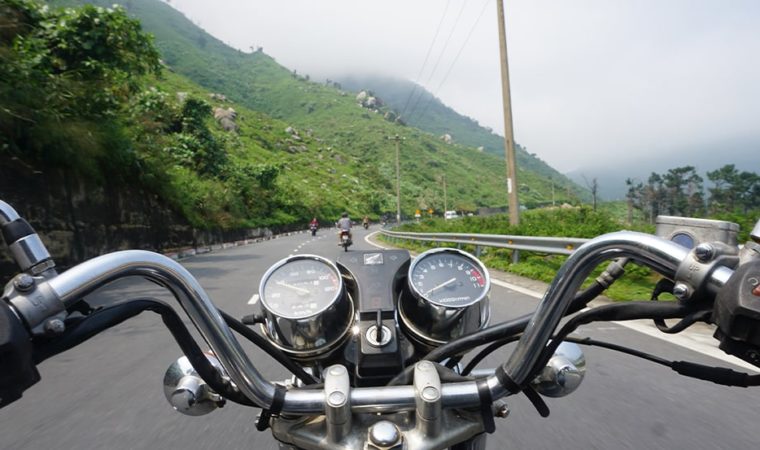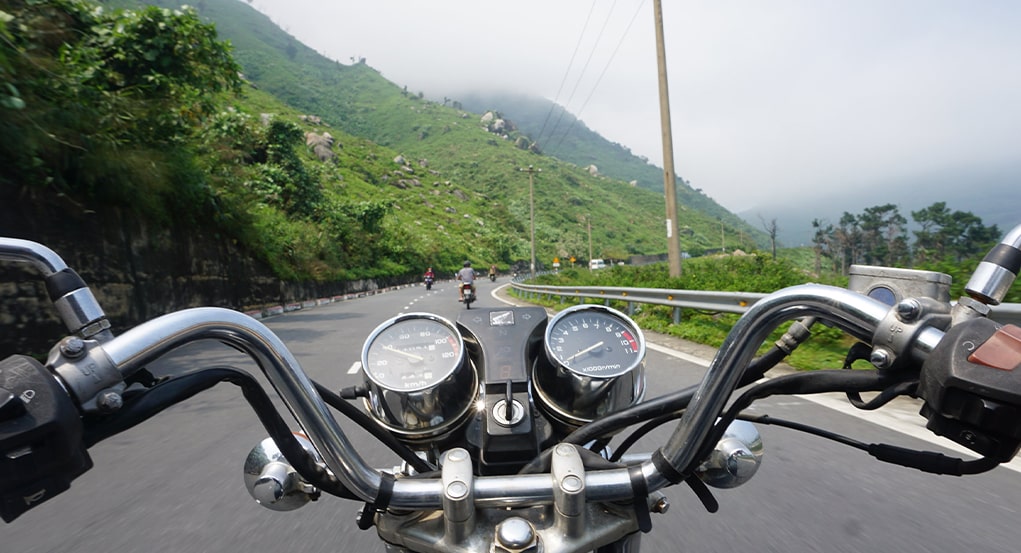



On the road in Vietnam, Part Two
We sent two members of our team to Vietnam, where the majority of our cashews are grown and processed, to gather as much information as possible about the environmental, social, and economic impacts of our cashews, and to better understand our cashew supply chain. Please enjoy Part 2 of a two-part series where Carly, our Director of Innovation, reflects on the sustainability aspect of the cashew trade in Vietnam.
Three places that seemingly couldn’t be more different from one another: a Northern California metropolis, a bone-dry desert in the Coachella Valley, and a hot, humid, Southeast Asian jungle a world away. What binds these disparate places and people is one journey to trace our company’s flagship ingredient, the cashew, from our corporate headquarters in San Francisco and our factory in Indio, California, to the farms and processors in Vietnam.

Carly Smolak – Heads up product innovation and sourcing. Oh… and she’s also very stylish!
I am endlessly curious about where my food comes from and the social and environmental impacts of the food industry. I wanted to know: what’s the real story behind a beloved nut that is a staple of my diet? This is my story of tracking down the organic cashew right to its place of origin and the unexpected insights and adventures that come with any good expedition.
I landed in Ho Chi Minh City after 18 hours of travel from San Francisco, just enough time to get through nearly all of the ten-part documentary series on the Vietnam War by Ken Burns and Lynn Novick. It’s not exactly light viewing material, but any discomfort I may have felt being an American in Vietnam immediately dissipated in the warm, friendly, and inviting culture that greeted me. I got to my hotel at 3 am Saturday local time, and the young desk clerk who was working the graveyard shift directed me in my severely jetlagged condition to the local watering hole around the corner. I wasn’t going to have much time to explore Vietnam outside of the packed itinerary of visiting cashew farms and processors, so I was trying to squeeze in little excursions everywhere I could.
As a vegan, it was easy for me to find plant-based options as almost all restaurants had offerings designed to suit the vegetarian diets of Buddhist monks. The variety of fruits, vegetables, and subtle yet complex savory broths were mind-blowing. The third wave coffee scene is on fire in Ho Chi Minh City, and there are even micro-breweries, old-world cocktail bars, and art galleries springing up in the old dilapidated French colonial structures around town. This is one of my favorite cities I’d ever visited.

Cashews, a friend to all plant-based diets globally.
After a day of site-seeing in Ho Chi Minh City, I hit the road to begin our packed five-day tour to visit four organic cashew farms and three processors. Cashew farming and processing take place in the central and southern portion of Vietnam, many of them very near the Cambodian border and the former Ho Chi Minh Trail. Cashew farms resemble idyllic orchards; they are full of bird life, often flanked by small subsistence farms bearing a variety of vibrant tropical fruits and vegetables, and other groves of cash crops (such as rubber trees and peppercorn vines). The sweet fruity and floral smell of cashew apples fills the warm air while farmer workers, all women that we saw, tend to the fallen cashew apples and debris on the orchard floor.
Coming from California, fresh water consumption and droughts seem almost commonplace topics of conversation. Well here’s some good news: cashews require ZERO irrigation in Vietnam as they are sufficiently watered by the rains. Not only do they not require irrigation, naturally pest-resistant cashew trees actually thrive under organic farming practices. Organic farming methods have been found to increase yields and reduce the cost of maintaining cashew farms compared to conventional methods. However, some savvy marketing on behalf of chemical companies has created an unfortunate myth amongst farmers in the region that organic agriculture is an outdated method of production. While agronomists are actively working to educate farmers and cooperatives on both the financial and environmental benefits of organics, choosing certified organic foods here in the US is one way for all of us to help the soil, waterways, and health of the people on the other side of the world. Our food choices matter.
Not only are cashews a great sustainable food source in their own right, they can play an important role in reducing our dependence on foods made from and by animals. Animal agriculture contributes more greenhouse gas emissions than the entire transportation sector combined, it is responsible for the majority of global freshwater consumption, and it is a primary driver of rainforest deforestation, topsoil erosion, desertification, species loss, and water pollution. Moving towards a plant-based diet, away from things like meat, milk, dairy, and eggs, is the single most impactful consumer choice a person can make towards reducing their environmental footprint.

Cashew farms resemble idyllic orchards. Great for cruising past on your motorcycle!
I’ll argue that all roads eventually lead to cashews when one cooks plant-based on the regular. Their creamy, fatty, texture and neutral flavor profile make them an amazing substitute for dairy. For years I have used cashews in plant-based cheeses and creams and spreads. They are quite easy to work with, a forgiving ingredient flavor-wise, and have enabled me to delight the omnivores in my life with my plant-based creations. And, of course, they are central to my work here at Forager Project.
What began as an intellectual journey to understand the sustainability of one of my favorite foods became a surprising adventure. I went for the cashews and discovered an incredible agricultural practice and heart-warming culture. I went for the surf and ended up riding motorcycles through the jungled mountains. At Forager Project we like to say that foraging means to wander and seek. I guess this is the point of seeking, the very act of pointing one’s ship in a direction will always lead to the discovery of something unexpected.

Forager Project is a family-owned and operated organic food company, crafting plant-based foods in California since 2013.